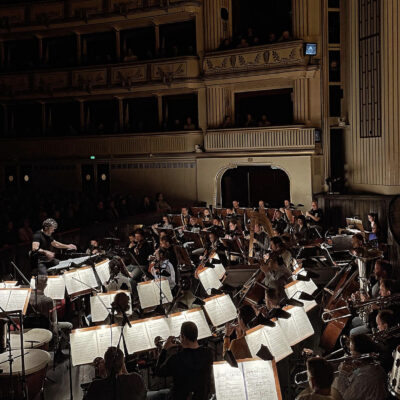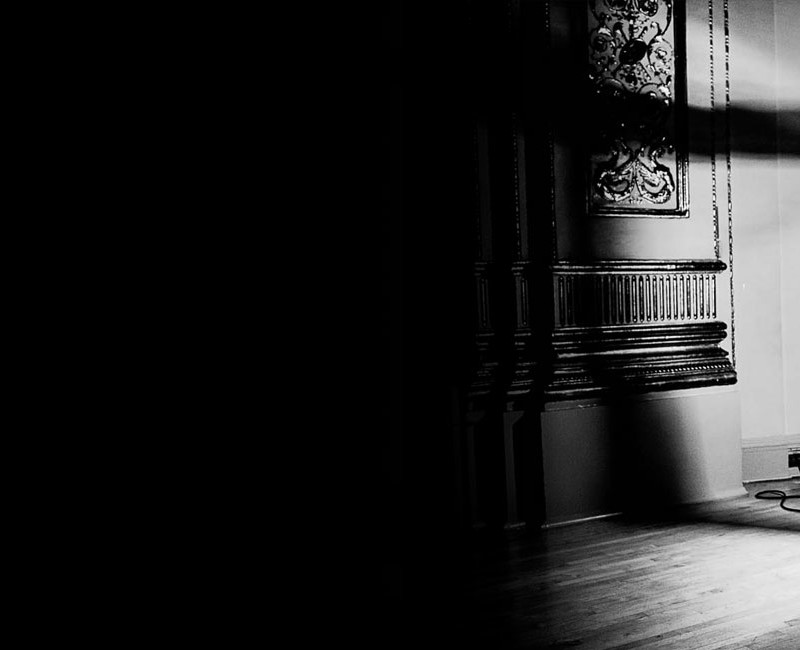
Premiere Le Grand Macabre, Ligeti – Wiener Staatsoper
14 Nov 2023
Apocalypse can be so colorful!
BR Klassik
It is the only opera by György Ligeti, but there is a whole world in it: “Le Grand Macabre” is a cornucopia of musical ideas. And they come into their own fantastically in the new production at the Vienna State Opera.
[…] In Vienna, Pablo Heras-Casado holds all the strings, ropes and occasionally choppy cables of the score together perfectly, the music is brilliant, and the Slovak Philharmonic Choir delivers precise vocal hullabaloo (rehearsed by Jozef Chabroň).
FAZ
(Frankfurter Allgemeine Zeitung)
Pablo Heras-Casado, one of the rare conductors who is well versed in both early and new music, has the Vienna State Opera Orchestra firmly under control and ensures not only rhythmic precision, but also the necessary transparency to follow the structural components of Ligeti’s multi-layered score. This makes it easy to understand that Ligeti also incorporates elements of his early stage work “Aventures & Nouvelles Aventures” (1966) by alienating familiar musical forms, from the mirror canon to the final passacaglia, to such an extent that they are barely recognisable. Nevertheless, Heras-Casado is not stingy in decisive passages with hard, straightforward attacks, whereby the second, somewhat smoothed version of the opera from 1997 is more unsettling than the production.
Der Falter
Conductor Pablo Heras-Casado, who has already worked with Lauwers on Monteverdi’s “L’Incoronazione di Poppea”, finds the ideal balance between intoxicating pulsation, intricate rhythms and occasional cantilenas.
In the ring of world ruins.
Der Standard
Conductor Pablo Heras-Casado organises Ligeti’s mix of styles with the State Opera Orchestra as the expressive motor of the scenic action. The sharp contrasts between anxiety music, rough interjections in the manner of Stravinsky’s wild Sacre du printemps and contemplative passages, sometimes reminiscent of Ligeti’s orchestral piece Atmosphères, had conciseness and profile.
Happy postponement of the end of the world.
Die Presse
György Ligeti’s “Le Grand Macabre”, for the first time at the Vienna State Opera: unanimous applause for a musically brilliant performance under Pablo Heras-Casado. [… ]Of course, the car horns that blast out of the pit right at the beginning, swinging so freely under the confident direction of Pablo Heras-Casado, are nothing more than a sedimented overture: Holla, watch out! The Gonzaga fanfare, with which Monteverdi began his “L’Orfeo” almost 400 years earlier, sends its regards, and it is generally fascinating how far the orchestra has played itself free in the previously unknown score and allows the gestures, which are often reminiscent of slapstick and cartoons, to be given a philharmonic sound culture without immediately domesticating them. Away from the constant soloistic acrobatics of not only the enormous percussion apparatus, Nekrotzar’s entry into the princely court becomes an instrumental climax based on the ostinato bass from Beethoven’s “Eroica” finale: Heras-Casado and the Philharmoniker savour the increasingly bold, grotesque overlays to the full. And then there are always wondrously glassy, fragile moments with the small, bass-heavy strings – moving. A tremendous performance that finds its continuation and counterpart on stage.
Kleine Zeitung
Pablo Heras-Casado, the State Opera Orchestra and the Slovakian Philharmonic Choir transform Ligeti’s highly complex, polystylistic score into a sparkling firework display that will delight even the inexperienced.
Let’s dream, let’s make love.
Kurier
Which brings us to the musical side, because this is also great art. Conductor Pablo Heras-Casado provides the most beautiful Ligeti sound at the podium of the very demanding and excellent orchestra (praise also goes to the choir).
Salzburger Nachrichten
And the State Opera Orchestra? Pablo Heras-Casado has done a marvellous job, leading the winds and the large percussion section with precision through Ligeti’s colossal score, which takes us through the entire history of music with car horns and sirens, disassembled into small parts and reassembled with relish. A masterpiece, furious and grotesque.
Süddeutsche Zeitung
Conductor Pablo Heras-Casado, who can do everything from baroque to modern and made his debut in Bayreuth this year, encourages the State Opera musicians, most of whom work part-time as Vienna Philharmonic musicians, to be firm, incisive, full of sound, presence and coherence, bringing out the traditional side of this exceptional score to magnificent effect.
Volksblatt
Pablo Heras-Casado, who also worked with Lauwers on Monteverdi’s “L’Incoronazione di Poppea” at the State Opera, also made the leap from the 16th to the 20th century seamlessly. The Spaniard holds the orchestra together on the podium
A paradise for dancers of death.
Kronen Zeitung
György Ligeti’s “Le Grand Macabre” impresses for the first time on the State Opera stage.
[…] A tricky score, brilliantly realised by the Staatsopernorchester under the excellent Pablo Heras-Casado.

